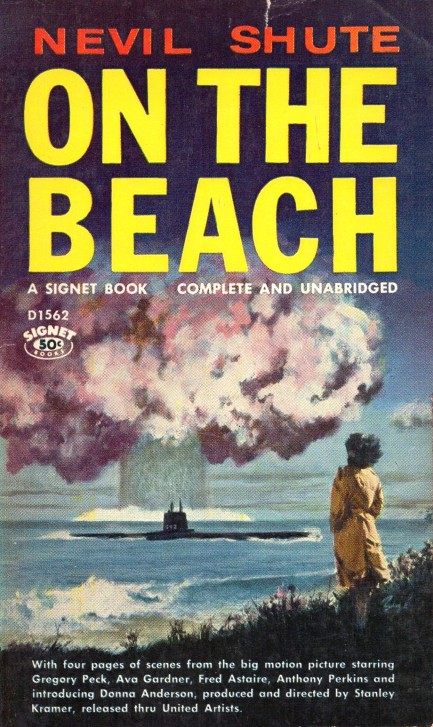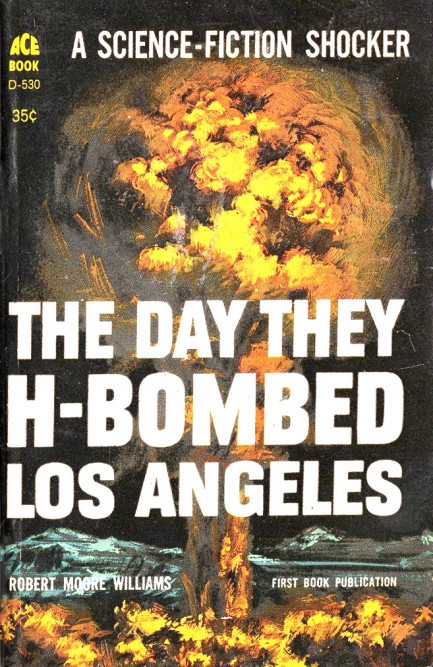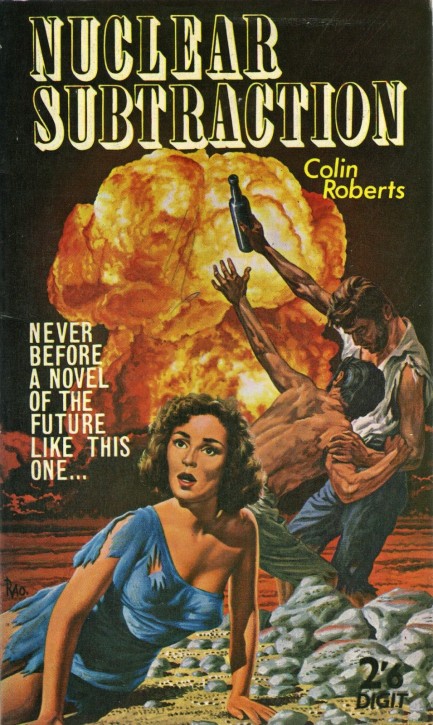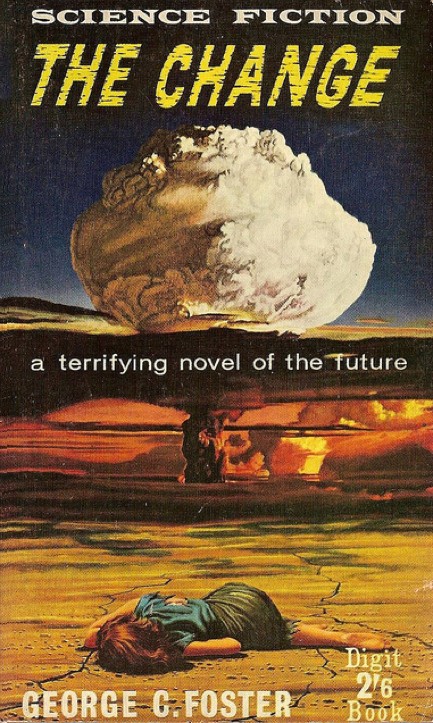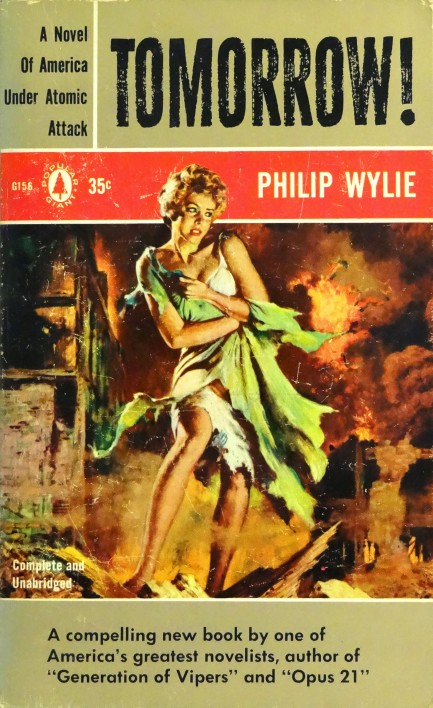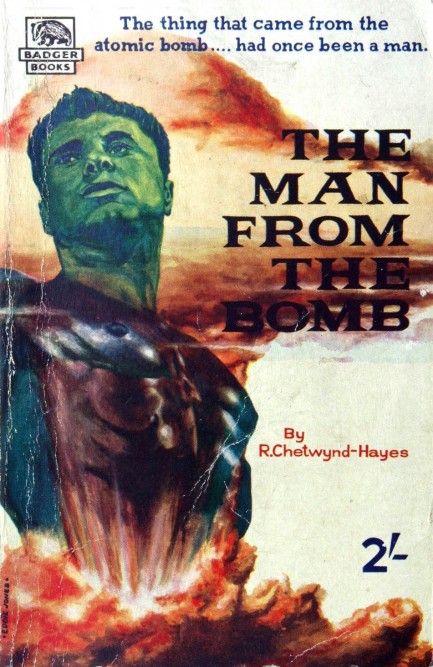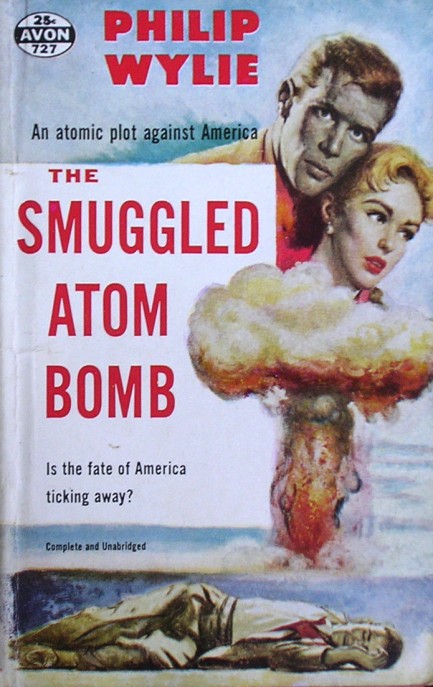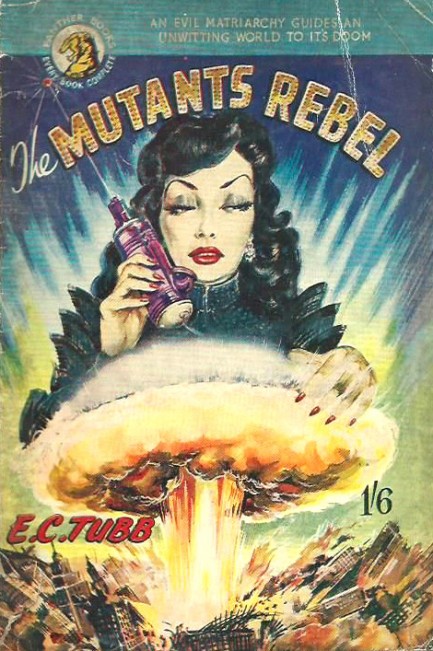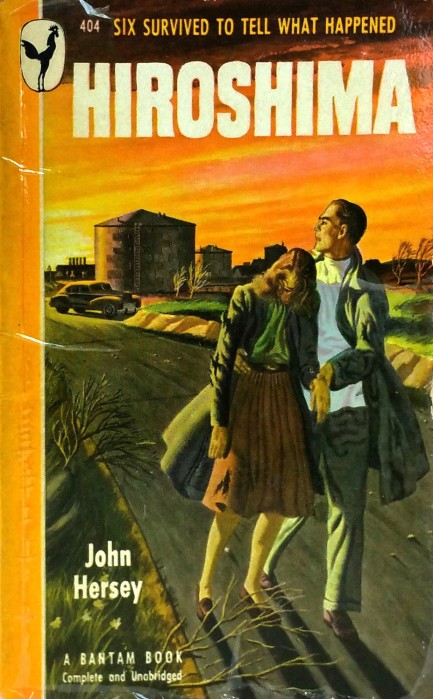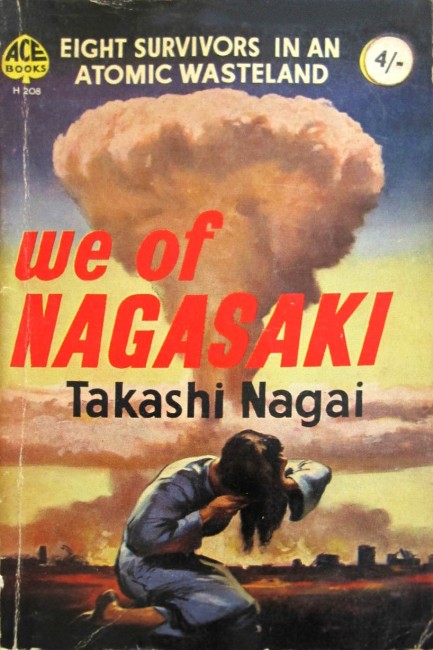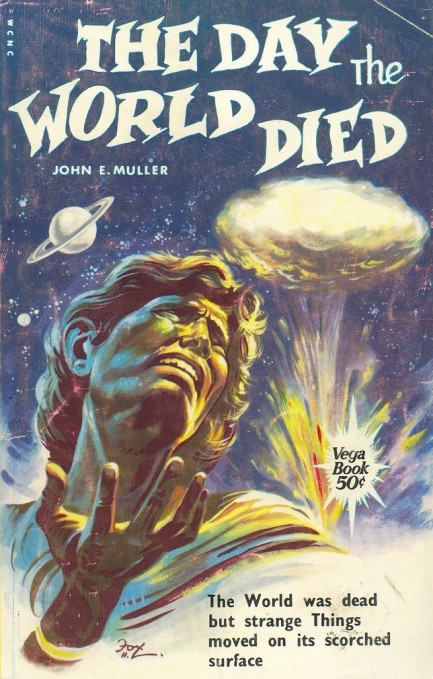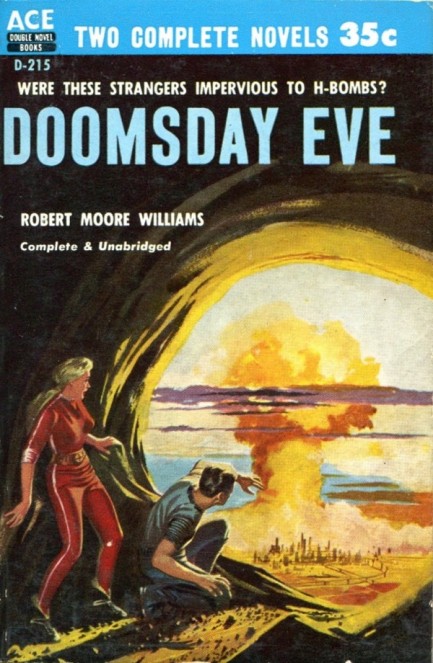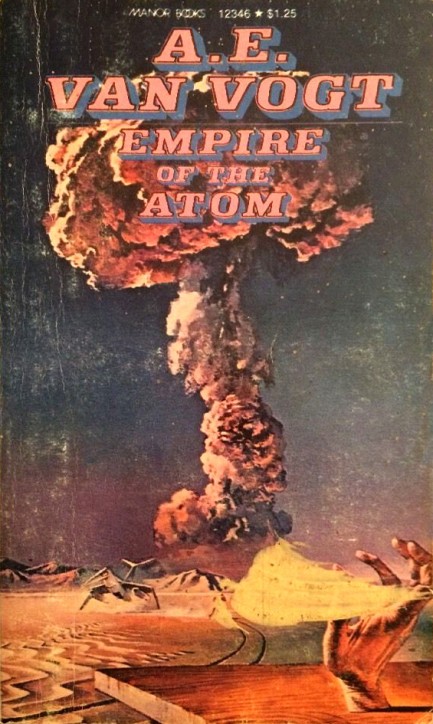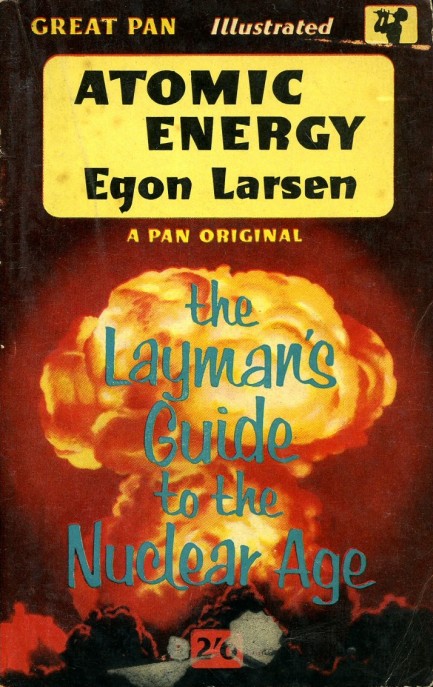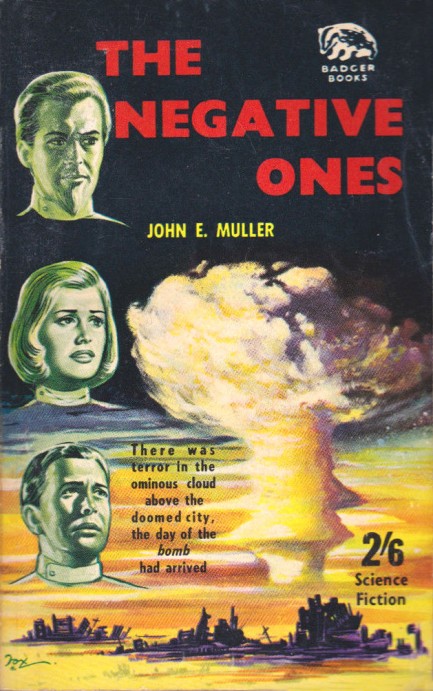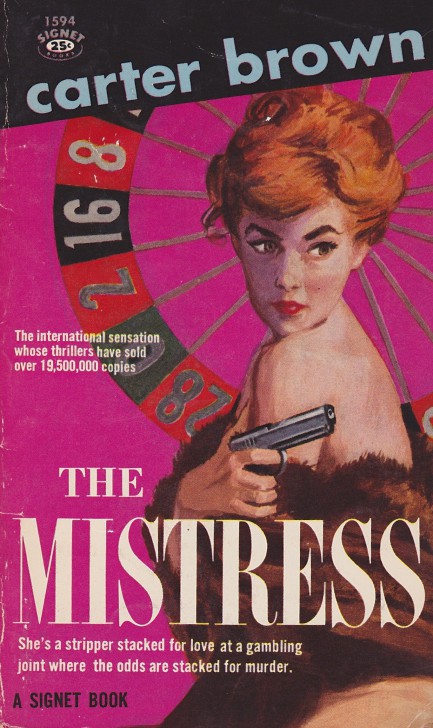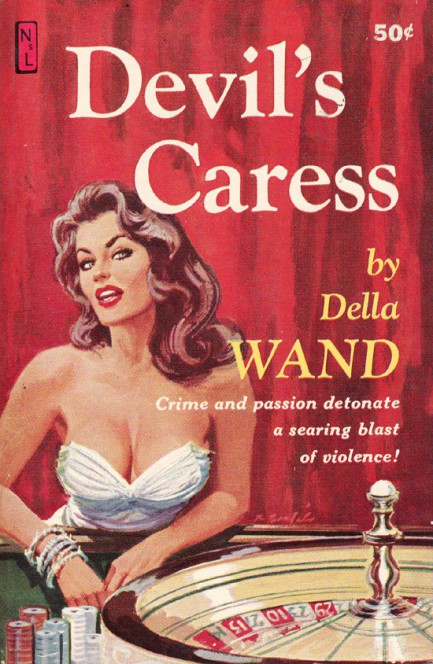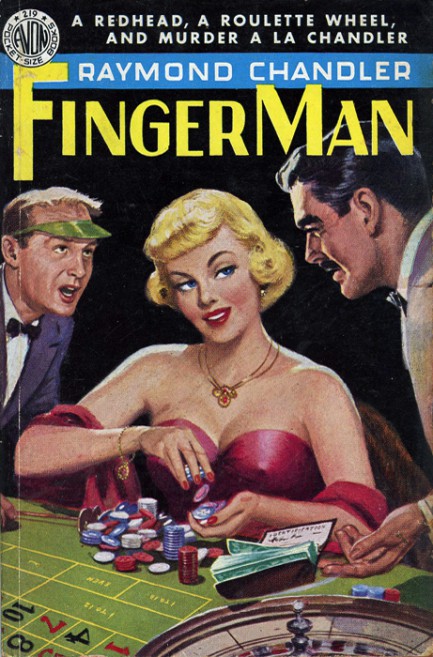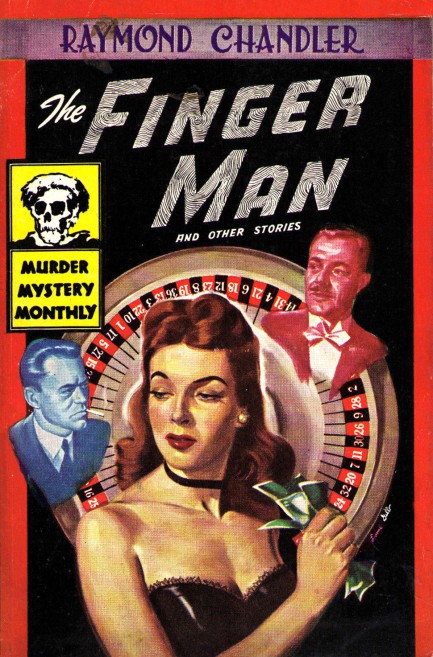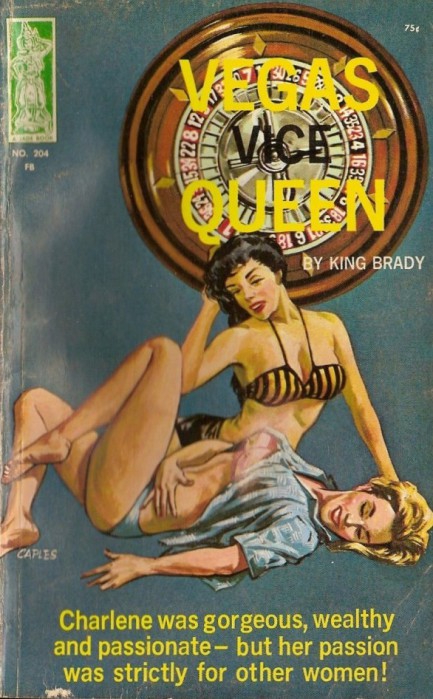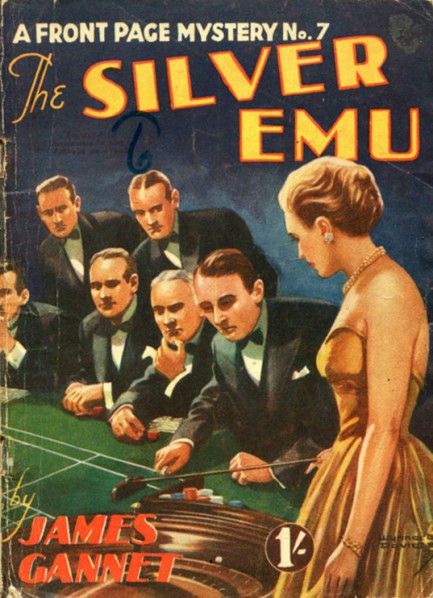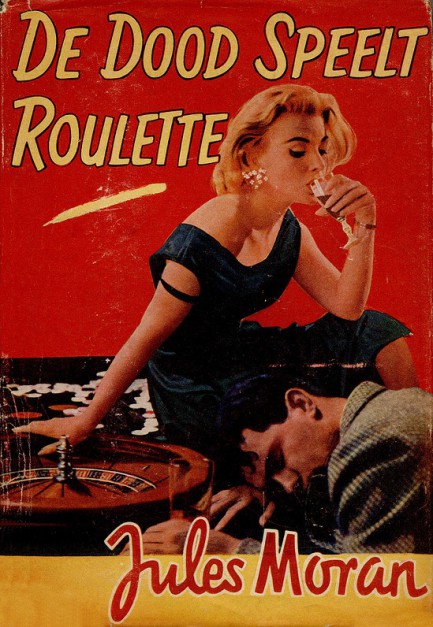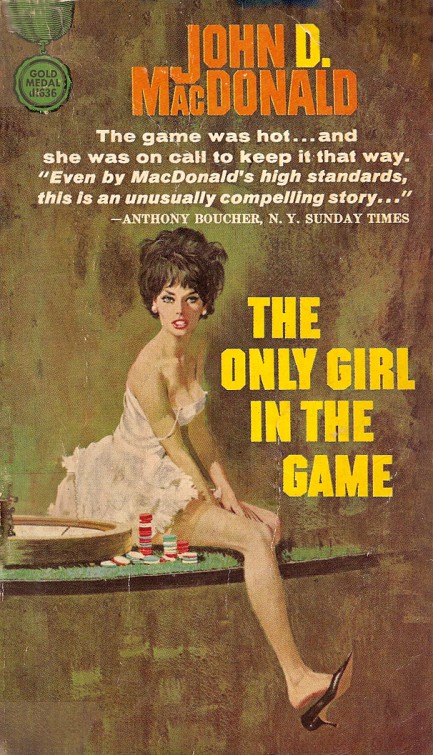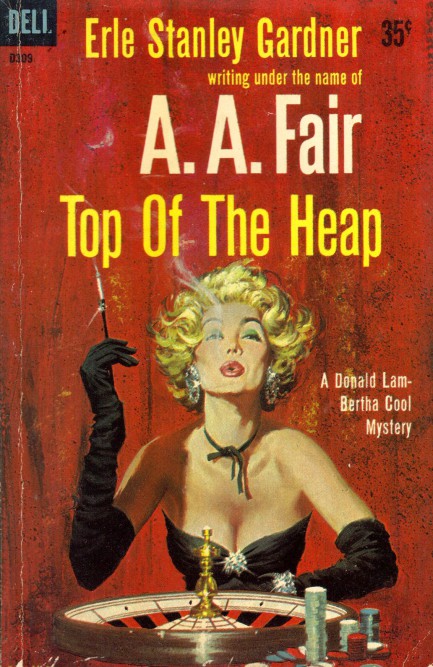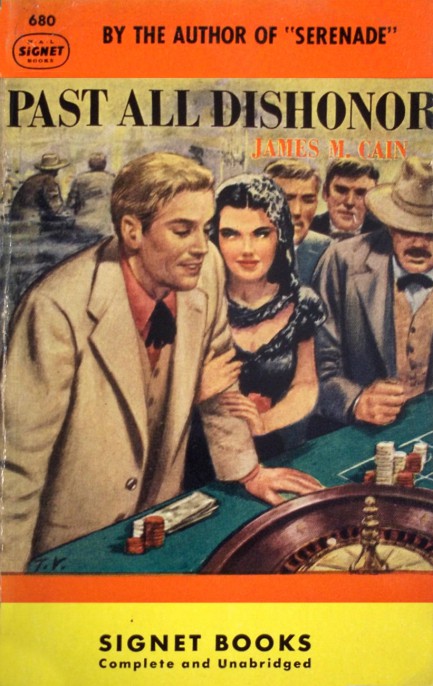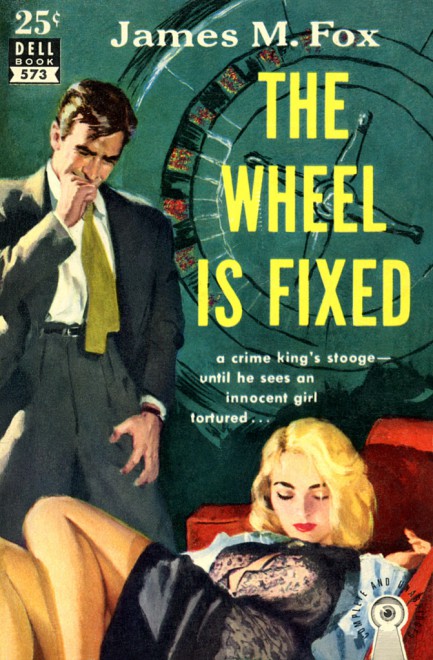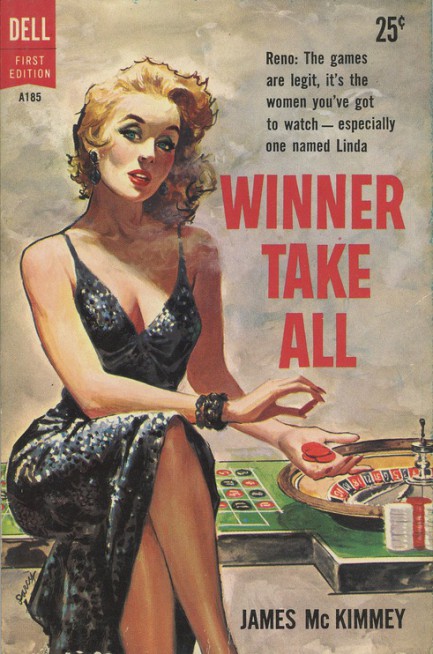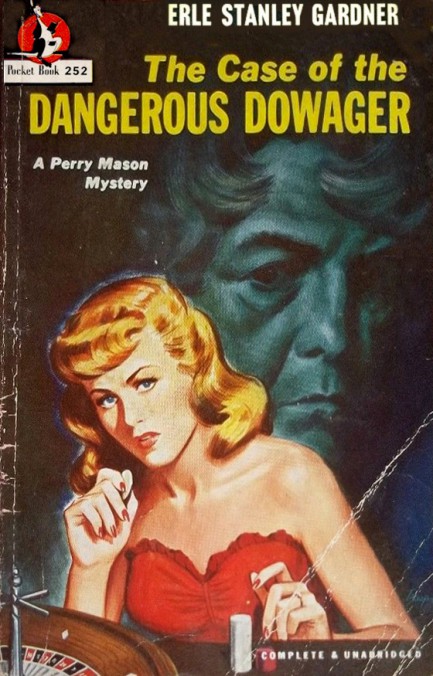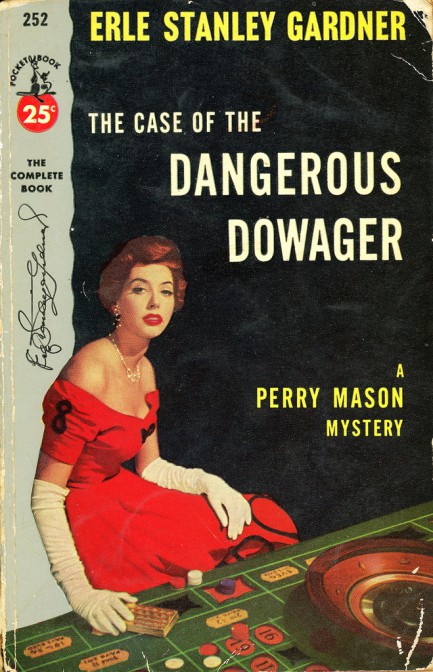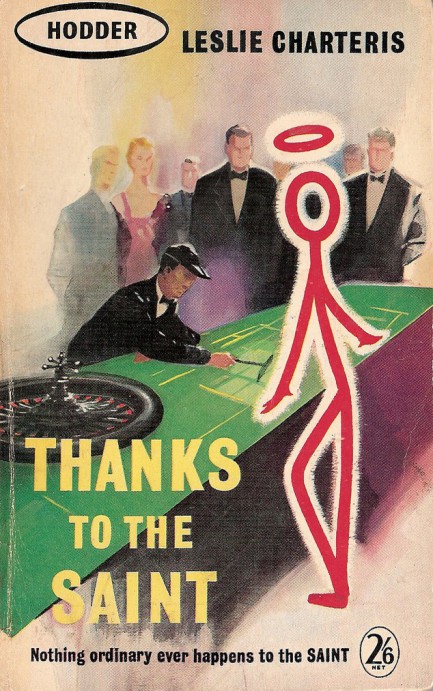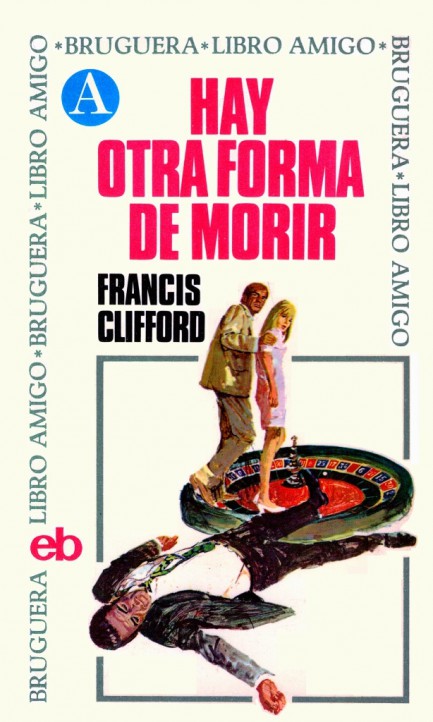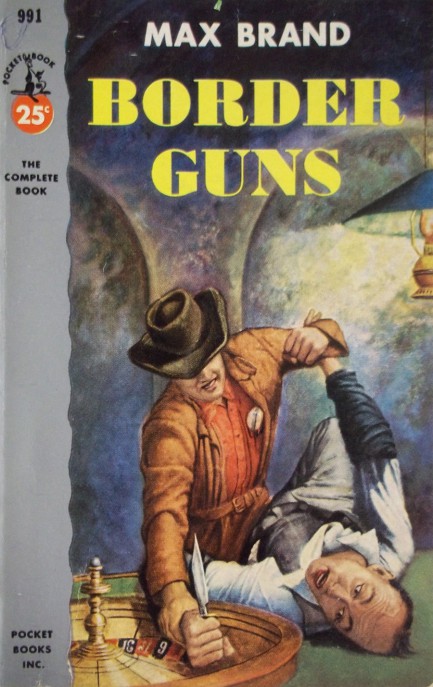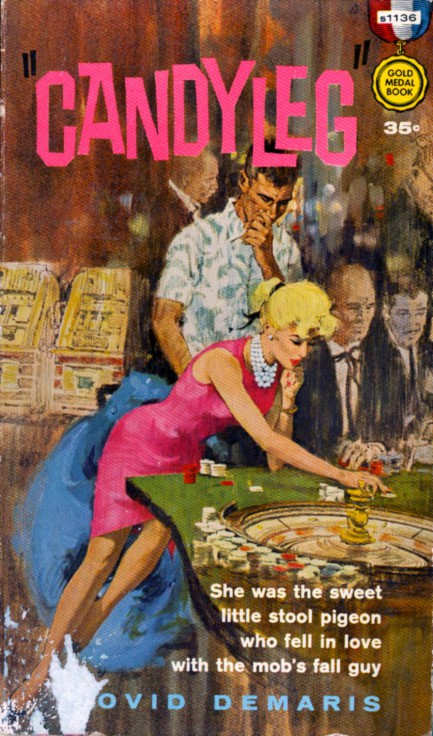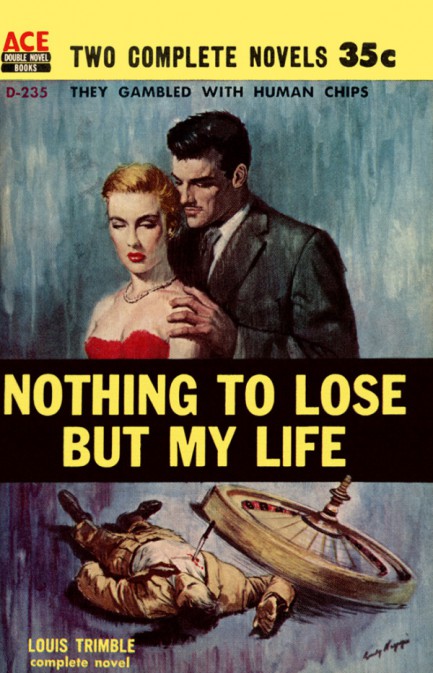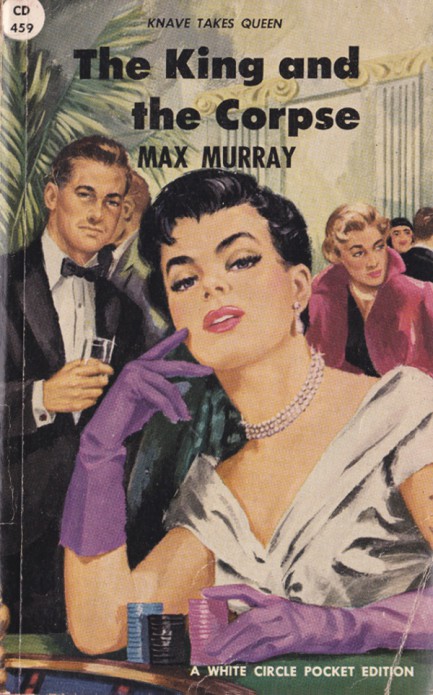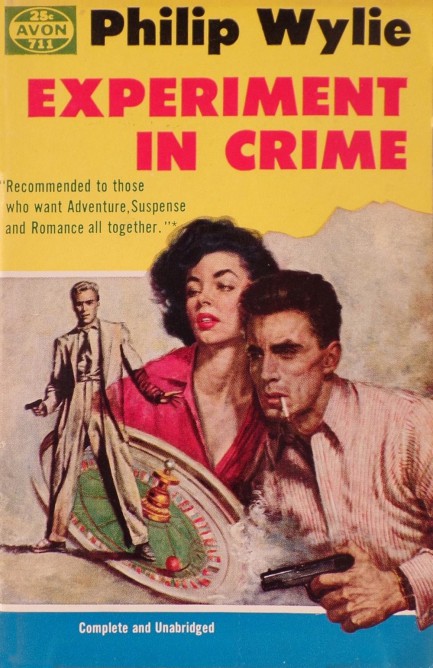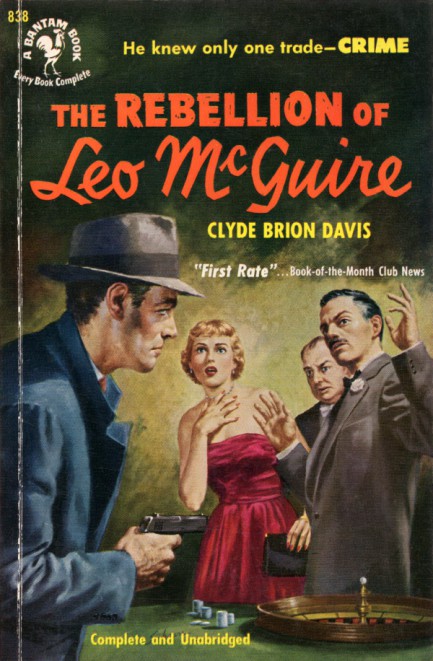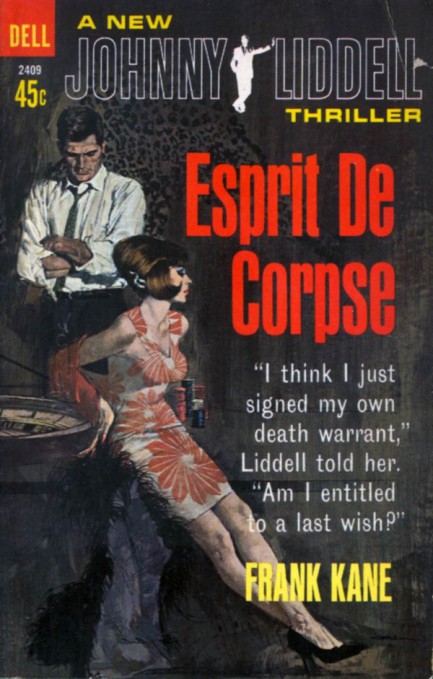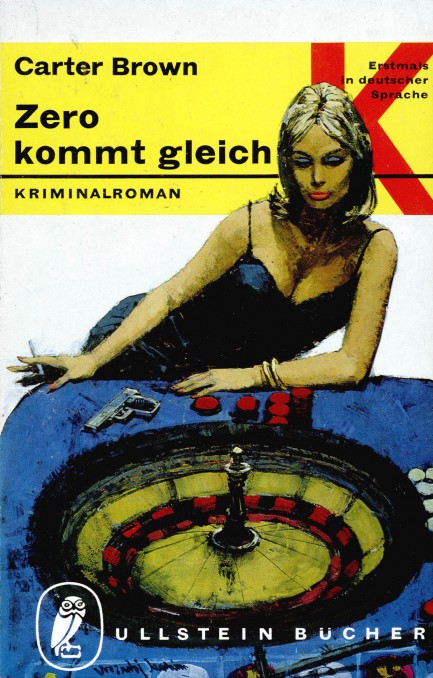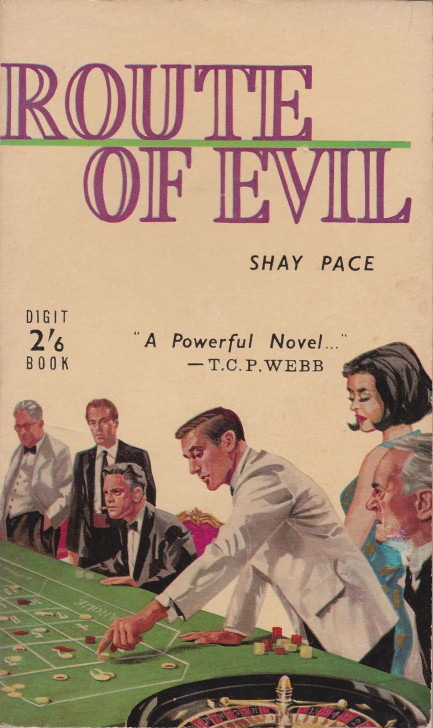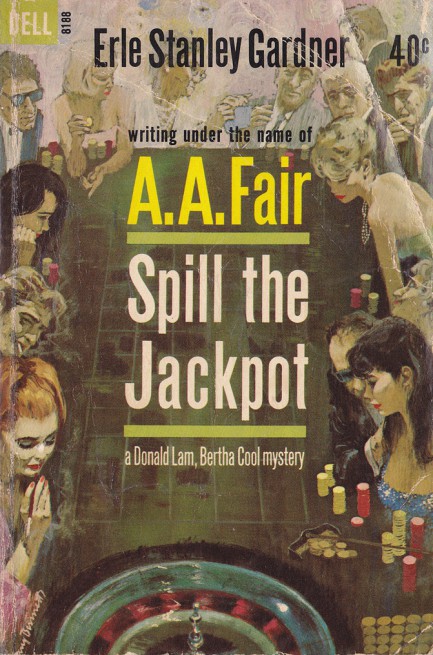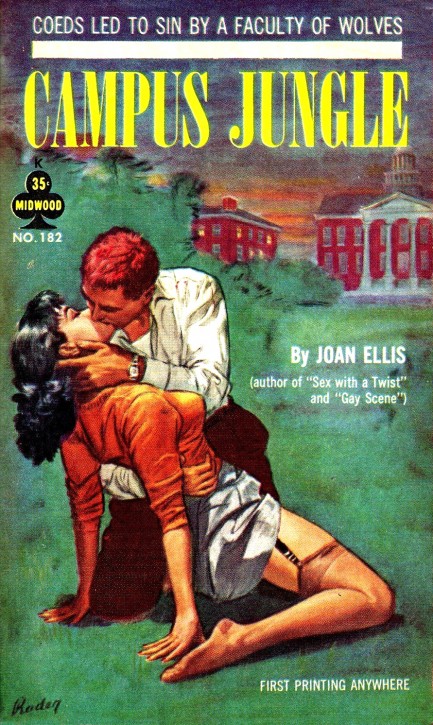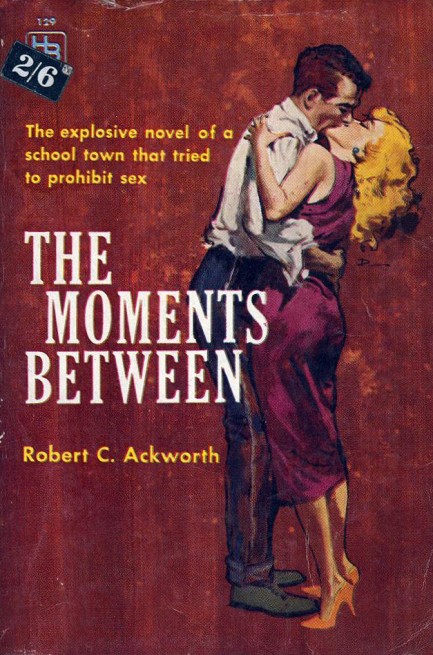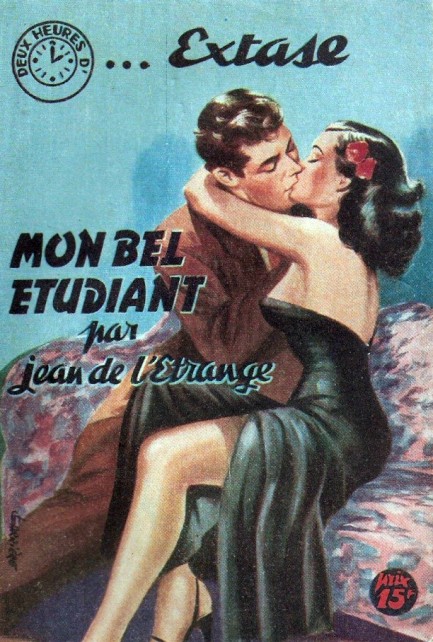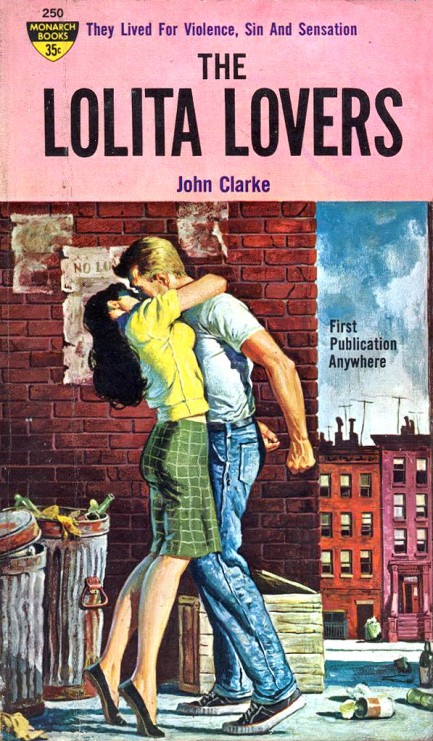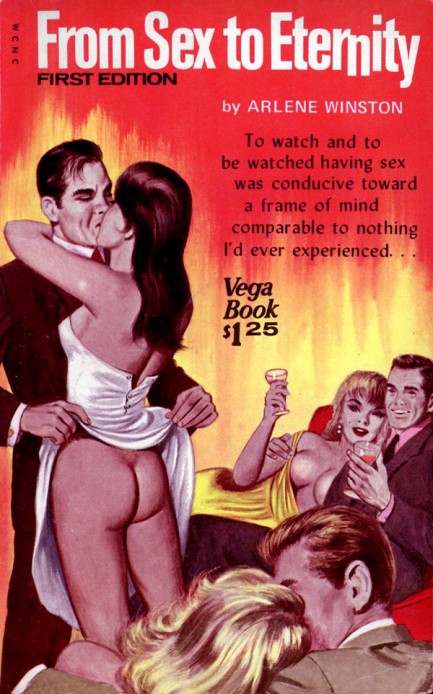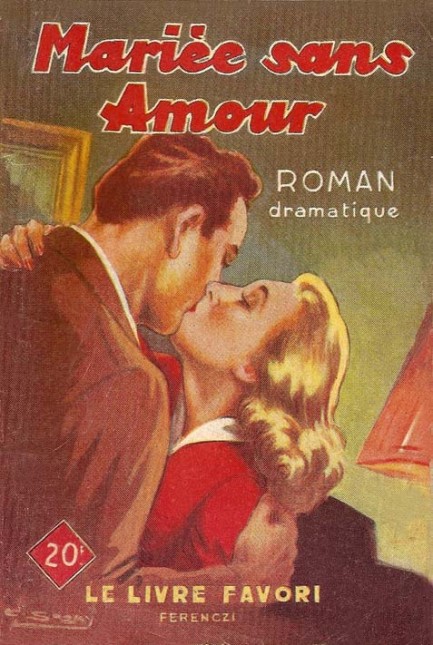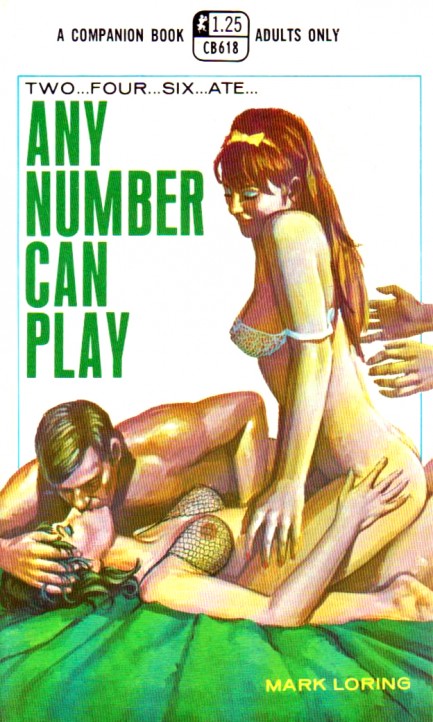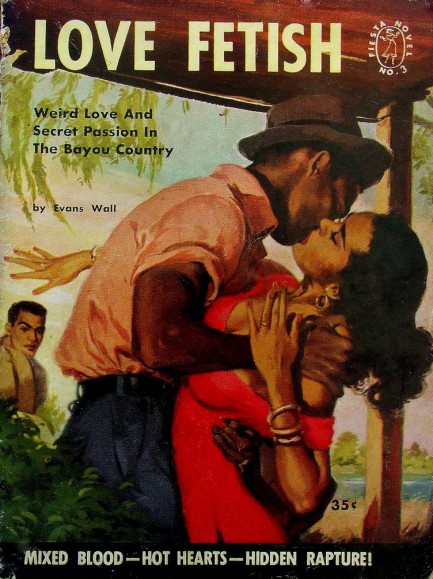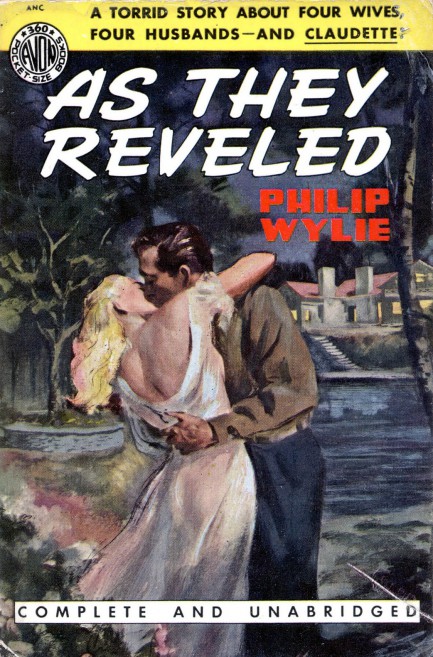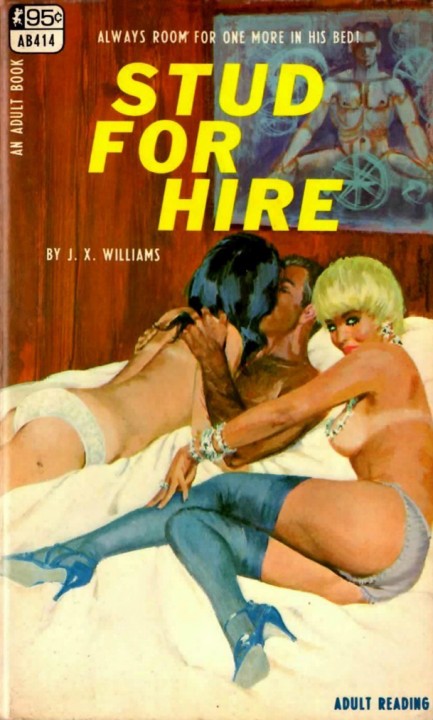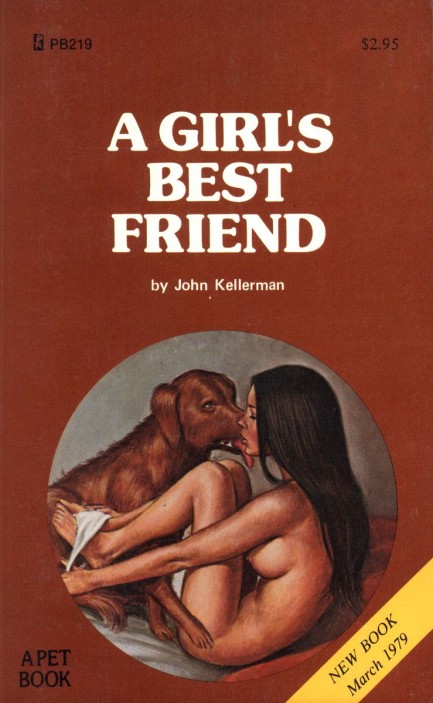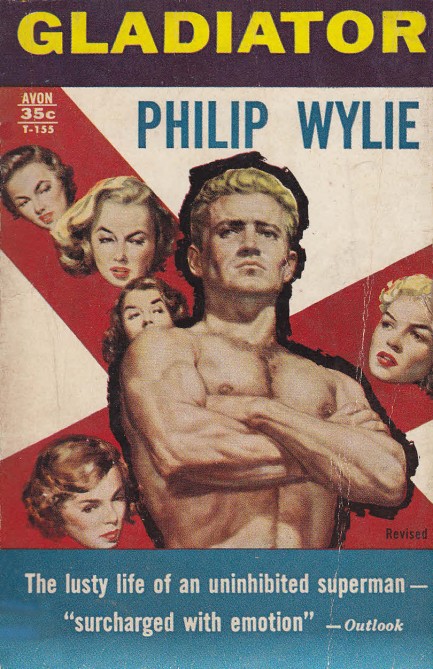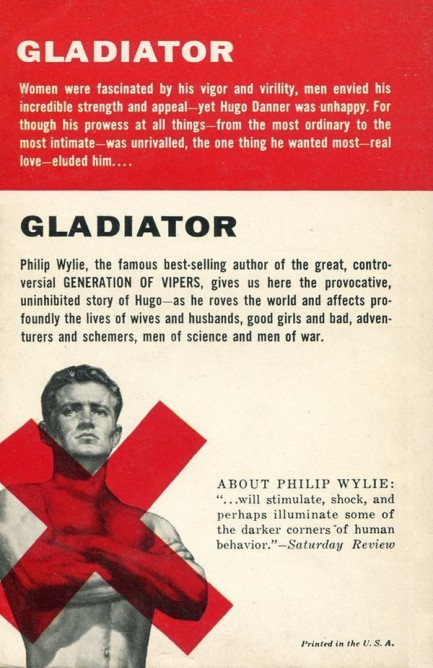 It's a man's man's man's world, but it wouldn't be nothing without a woman... to fight over. 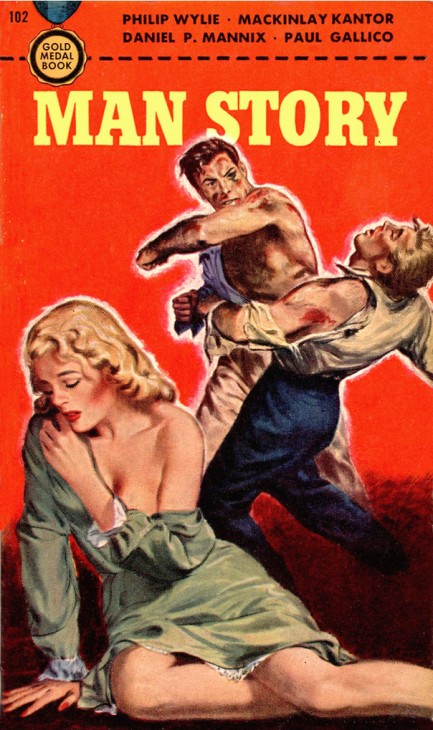
When Fawcett Publications launched its Gold Medal line, Man Story was the second paperback it put out. It's a fiction anthology culled from the pages of True magazine, which was part of the Fawcett stable, and it came out in 1950 numbered 102 on the cover because the series began at 101. There are heavyweight, widely published authors in this collection, including William Attwood, Daniel Mannix, and Barnaby Conrad. Of special note are Philip Wylie, who wrote Gladiator, Paul Gallico, who wrote The Poseidon Adventure, and MacKinlay Kantor, who won a Pulitzer Prize for his novel Andersonville.
The Gold Medal line actually helped bring about the demise of pulp magazines. This was due partly to the sheer number of books it published (it went from 35 titles in 1950 to 66 the next year and never looked back), as well as to the shift in tone from the pulps it represented. Some of the writers published by Gold Medal would become huge names moving forward, including John D. MacDonald, Louis L'Amour, Richard Prather, and Charles Williams. Yet for all the importance of this second Gold Medal paperback, it's cheap as hell. We saw it selling for five dollars, which is a pretty nice price for the motherlode of testosterone fiction.
 If it feels good just do it.
You never forget your first kiss, right? Pulp and sleaze paperback covers have always been a medium for this form of affection, and so today we have for you below some of the most memorable kisses we’ve encountered over the years. Art by Paul Rader, Louis Carrière, Ernest Chiriaka and others. Enjoy.
 Ladies, trust me, there's enough to go around. 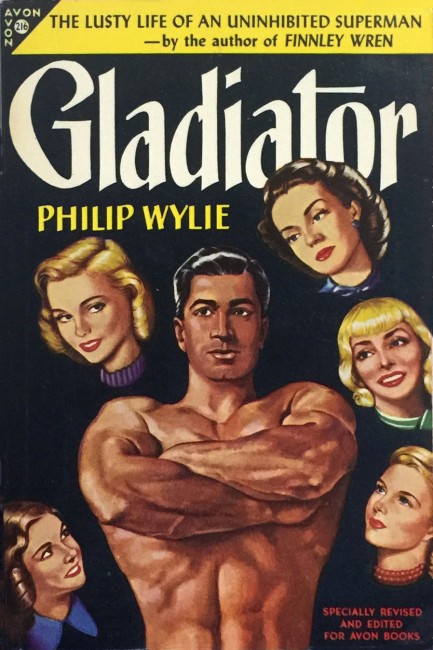
We tend to get books in lots, without knowing much about them, and with Gladiator we were thinking bodybuilding titillation, sort of like this book. But no. It's the life story of a superman. The main character, Hugo Danner, can lift a horse, jump forty feet straight up, crush bones, is bulletproof, and a genius. Originally published in 1930, the Danner character preceded the comic book Superman by eight years. Some say Superman was even a deliberate copy, though that remains in dispute.
But unlike Superman, Hugo Danner is earthly, with earthly worries about family, women, and morality, which makes for an affecting tale. His doubts come to the fore in the trenches of World War I, where he crushes enemies' heads to jelly, rampages German strongholds with such ferocity that even after bullets and bayonets rip his clothes from his impervious body he still kills hundreds while naked and drenched in gore. And he comes to realize the utter pointlessness of it all:
His heart ached as he thought of the toil, the effort, the energy and hope and courage that had been spilled over those mucky fields to satisfy the lusts and foolish hates of the demagogues. [snip] The war was only another war that future generations would find romantic to contemplate and dull to study. He was only a species of genius who had missed his mark by a cosmic margin.
Recommended stuff. These paperback editions from Avon appeared in 1949 and 1957, with nice cover art by unknowns. We should mention, though, that the art is deceptive. Hugo is no fuckboy. In fact, the book barely focuses on sex apart from his earliest encounters. Gladiator is an attempt at serious, speculative sci-fi. Know that going in and you'll probably enjoy it.
|
 |

The headlines that mattered yesteryear.
2003—Hope Dies
Film legend Bob Hope dies of pneumonia two months after celebrating his 100th birthday. 1945—Churchill Given the Sack
In spite of admiring Winston Churchill as a great wartime leader, Britons elect
Clement Attlee the nation's new prime minister in a sweeping victory for the Labour Party over the Conservatives. 1952—Evita Peron Dies
Eva Duarte de Peron, aka Evita, wife of the president of the Argentine Republic, dies from cancer at age 33. Evita had brought the working classes into a position of political power never witnessed before, but was hated by the nation's powerful military class. She is lain to rest in Milan, Italy in a secret grave under a nun's name, but is eventually returned to Argentina for reburial beside her husband in 1974. 1943—Mussolini Calls It Quits
Italian dictator Benito Mussolini steps down as head of the armed forces and the government. It soon becomes clear that Il Duce did not relinquish power voluntarily, but was forced to resign after former Fascist colleagues turned against him. He is later installed by Germany as leader of the Italian Social Republic in the north of the country, but is killed by partisans in 1945.
|

|
|

It's easy. We have an uploader that makes it a snap. Use it to submit your art, text, header, and subhead. Your post can be funny, serious, or anything in between, as long as it's vintage pulp. You'll get a byline and experience the fleeting pride of free authorship. We'll edit your post for typos, but the rest is up to you. Click here to give us your best shot.

|
|



